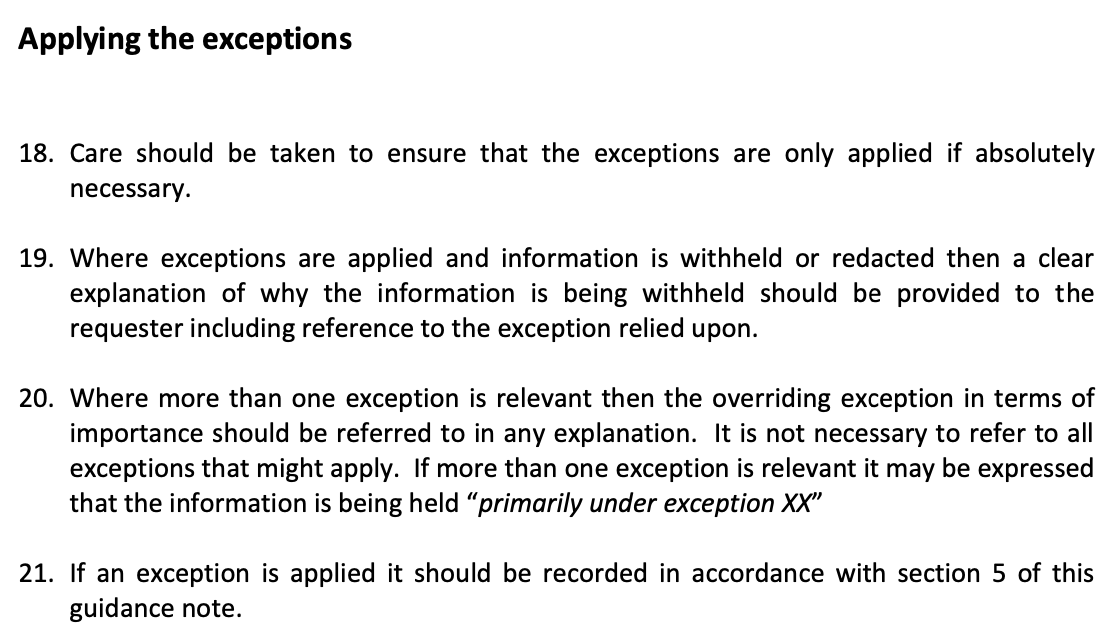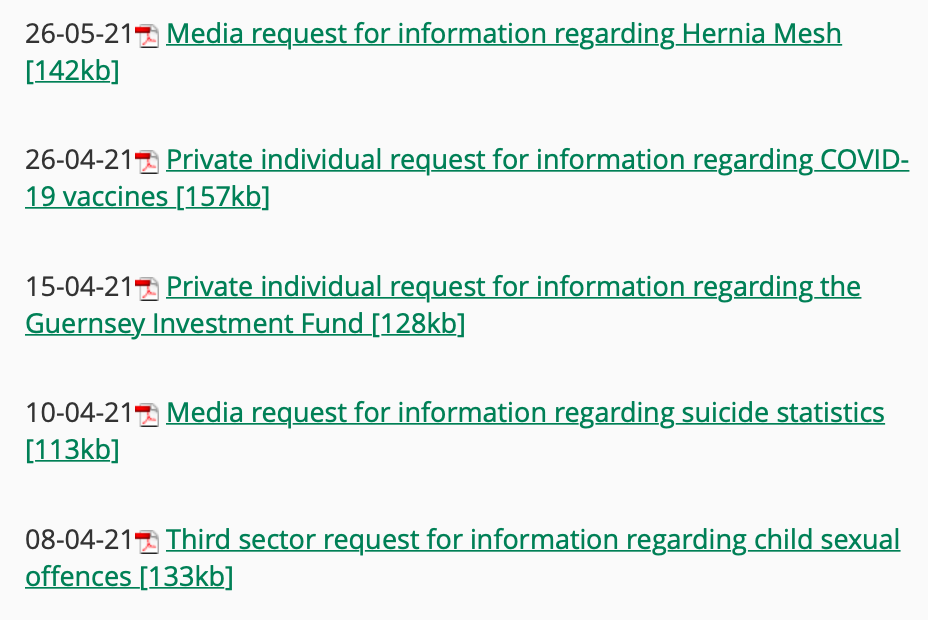


Guernsey politicians have shelved a plan for a Freedom of Information Law on the island, which would gives islanders a legal right to know about the activities of public authorities.
A Freedom of Information Law has been operating in Jersey and the UK for many years. It allows the public and media to ask the Government any question they want – the Government must always provide that information if it holds it, unless there is a strong reason not to do so (i.e. commercial sensitivity or personal information).
It was the law used by Express to secure former CEO Charlie Parker’s contract, expose the row over PPE that led to the Prison Governor's departure last year, and release a secret report exposing widespread institutional bullying and harassment in 2018.
But cost and the unlikelihood of political priority were given as reasons for Guernsey to shelve introducing such a law in favour of an independent appeals panel which cannot compel Government to do anything.
A Committee recommended that the current Code of Practice on Access to Public Information (API) is "strengthened" swiftly and at low-cost by adding a new appeals process.
That proposition was backed by Guernsey's States Assembly following an astonishing debate that saw the Chief Minister Peter Ferbrache and Health President Al Brouard call for Government to become less open and transparent by charging the media and other businesses for asking the States questions.
Under the current API system, there are a series of exemptions can be applied to information requests from the media or the public.
These are in place to prevent against confidential information ending up in the public domain, however the States has the final say over where and when the exemptions are applied and whether they are justified.

Pictured: Exemptions should only be applied if necessary, according to the States' guidance.
The perception that the States "is effectively marking its own homework" was identified by the island's Scrutiny President Yvonne Burford as a problem that needed a solution.
She described an appeals panel - independent from Government - as a "pragmatic, practical, cost-free and swift" improvement to the API Code. It will not, however, have any statutory footing to override a refusal to provide information, even if the panel recommends its disclosure.
This view was backed by the Assembly, however details of the recorded vote cannot be given because the States' feed cut out during the vote and declaration of the result.
The case for an Freedom of Information Law was made by Deputy Burford's Vice-President, Deputy Simon Fairclough, who said it is an essential and integral part of the scrutiny of government.

Pictured: The President of Health and Social Care Al Brouard made the bizarre declaration: "I don't know where I signed up to openness and transparency” when becoming a deputy.
However, the former political journalist was the lone voice on his committee to press for further investigation into setting up legislation. Deputy Burford said it was clear that States resources would be prioritised elsewhere and that there was no support whatsoever from the committee in charge of the purse strings - Policy and Resources, which is led by the Chief Minister.
It left the Scrutiny President warning that a vote for Freedom of Information "will see no change happen".
On Wednesday afternoon, Deputy Ferbrache claimed the public already trusts the States to be open, transparent and ethical in everything it does.
"Freedom of Information is something that not very many people are interested in because the States is already open, transparent and ethical," he asserted.

Pictured: The latest five API requests submitted by members of the public and third sector groups.
"For every right that we have, we have a duty, and we have a duty to act sensibly. If the Press want information they should be given it. But if they are a commercial entity, they should pay for it."
He urged colleagues any proposal for Freedom of Information: "I bet none of you [fellow States members] lose any votes at the next election based on how you vote on Freedom of Information."
A previous committee had advocated for a full Freedom of Information Law following extensive research and consultation. However, that committee ran out of time to submit its proposals around the time of the pandemic. There have now been elections since then, bringing a new set of States Members.
Comments
Comments on this story express the views of the commentator only, not Bailiwick Publishing. We are unable to guarantee the accuracy of any of those comments.